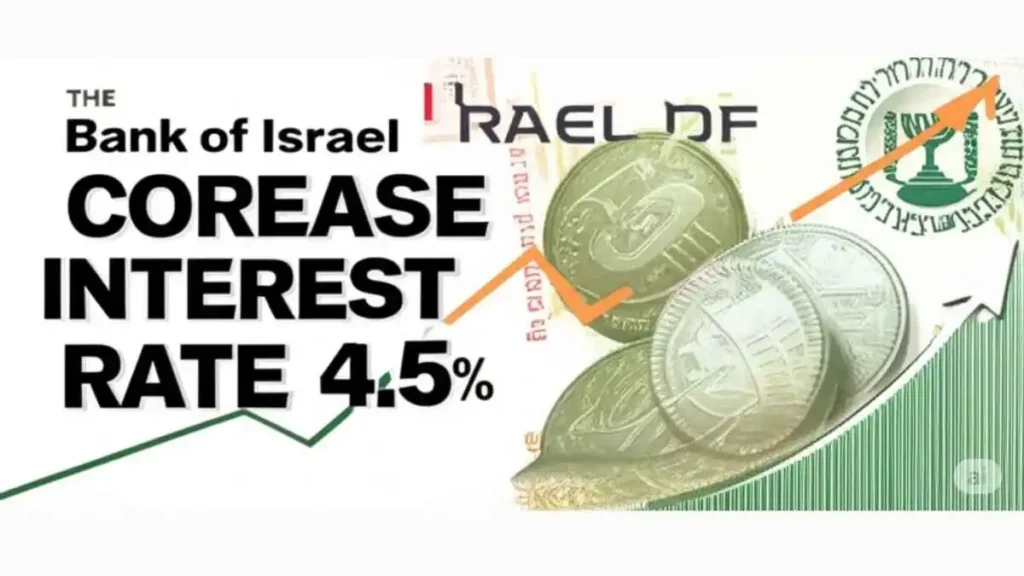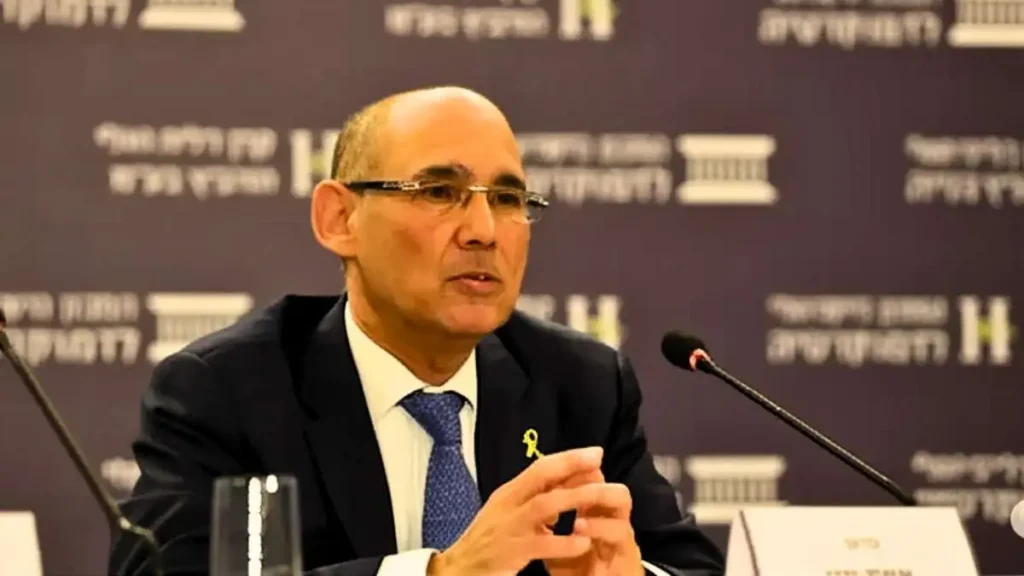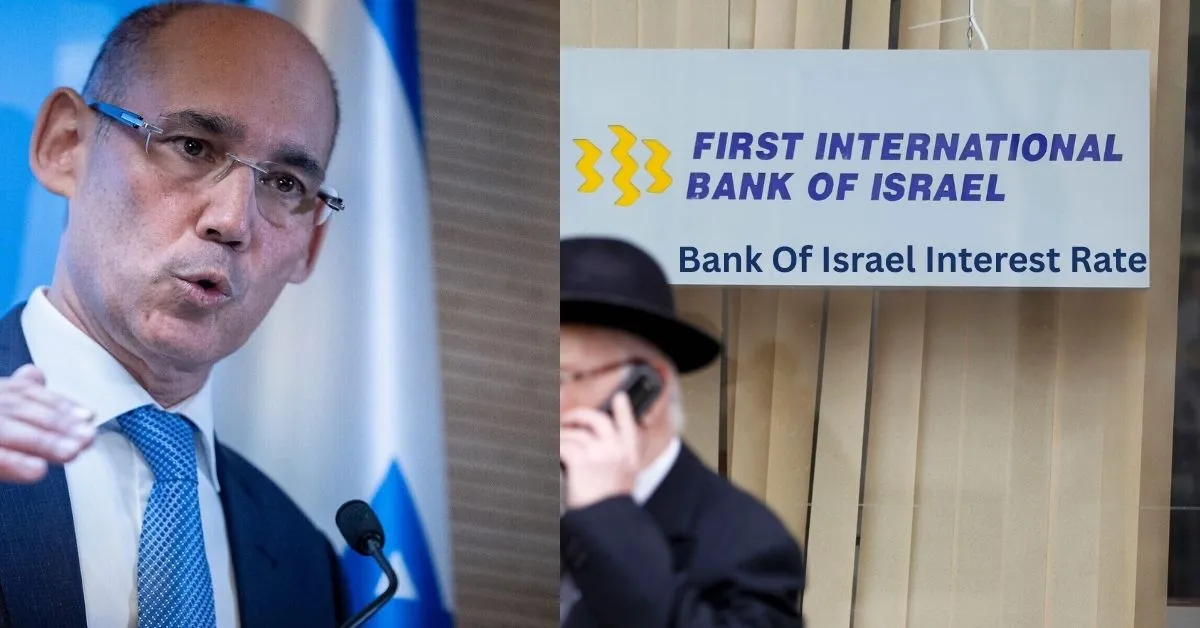Bank of Israel Holds Interest Rate at 4.5% Amid Economic Uncertainty. Jerusalem, 7 July 2025 Bank of Israel Maintains Steady Policy.
On Monday, 7 July 2025, in Jerusalem, the Bank of Israel, under the leadership of Governor Amir Yaron, announced that it would maintain its benchmark interest rate at 4.5% for the 12th consecutive time.
This decision was made by the Monetary Policy Committee of the central bank and demonstrates a careful approach as they assess how a recent rise in the shekel and reduced geopolitical tensions following a ceasefire with Iran are affecting the economy.

Even though business leaders are increasingly calling for a rate cut to help boost an economy struggling with high inflation and issues caused by the war, the bank has decided to maintain the current rates.
Israel’s economy faced significant challenges in 2025, with inflation rates rising to 3.6% in April and then falling to 3.1% in May, according to the Consumer Price Index. The shekel has appreciated by 6.1% against a group of currencies since the last rate decision, which has helped ease inflation pressures, leading to speculation about a possible rate cut as soon as August.
ALSO READ
Mossad Agent, Israel, Iran, Gaza war Journalist Accusations
The recent ceasefire with Iran, which was announced last month, has lowered Israel’s risk premium, boosting hopes for monetary easing. However, ongoing price hikes in areas such as grocery stores, rents, and airfare have kept the central bank on high alert.
“We’re noticing signs of stabilization, but it’s still too soon to relax policy,” stated Professor Amir Yaron, the Governor of the Bank of Israel. “The strength of the shekel and the drop in inflation are positive signs, but we must ensure price stability before taking any action.”

The decision has caused different opinions. Leaders in the retail industry and the Histadrut Forum of the Self-Employed are asking for quick rate cuts to help businesses. “Small businesses are struggling with high borrowing costs,” said Rami Beja, who is the chairman of the Histadrut’s Self-Employed Forum. “A 0.25% cut isn’t enough. 0.5% is the least we need to have a chance to survive.”
On the other hand, some economists agree with the bank’s careful approach. “The Bank of Israel is smart to wait for more information,” said Yonatan Katz, the chief economist at Leader Capital Markets, which thinks there’s a 65% chance of a rate cut in July. “The shekel’s rise is a good sign, but there are still risks with inflation, and cutting rates too soon could hurt the economy.”
Social Media Reaction to the Bank Of Israel Interest Rate
The choice has also sparked online conversations, a significant post on X.
The Bank of Israel has kept interest rates at 4.5% since January 2024. This indicates that they are attempting to help the economy recover while also keeping inflation under control, which remains higher than their target of 1-3%. The ceasefire with Iran has altered expectations, and now analysts believe there’s a 65% chance of a rate cut in August, with a prediction that rates could drop to 3.6% within a year.
A stronger shekel and lower risk premium might allow for easier monetary policies, which could help industries like tech that raised $9 billion in the first half of 2025. But the ongoing conflicts, like the war in Gaza and the economic damage of about 8 billion shekels ($2.37 billion) from the Iran conflict, still make the future uncertain.
The Bank of Israel is set to make a crucial decision regarding interest rates on 20 August 2025, and many people are closely watching. Analysts think that if things stabilize more, it might lead to a rate cut. Currently, businesses and consumers are facing high borrowing costs, which could slow economic growth.
J.P. Morgan has revised its growth prediction for Israel in 2025 from 3.2% to 2%. Policymakers are expected to monitor inflation, currency fluctuations, and the actions of other central banks worldwide, particularly since many countries have already begun lowering their rates.
As Israel recovers from the war, the central bank is being cautious, demonstrating the importance of striking a balance between stability and growth. Everyone involved is encouraged to stay updated and monitor the Bank of Israel’s news for any policy changes.
My name is Farhad Dawar and I am graduate of the Institute of Media and Communication Studies Bahaddin Zakariya University Multan Pakistan. I’m passionate about journalism and media, and I believe in journalism of courage, uncovering the truth, and shaping the future.














